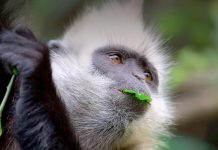Many of us who own dogs treat them with love and care, treating them like members of our family. Australia’s pet population is projected to be 24 million, with 62% of the population owning pets.
Our love, care, and attention for our pets shouldn’t change while we are expecting. However, in order to prioritize a mother’s and baby’s health and wellbeing, some pet care duties will need to be divided among your household.
Here are some useful hints to protect both you and your child from damage and zoonotic infections. Zoonotic illnesses can be contracted by eating tainted meat, which is how they are usually transmitted from animals to people.
When working with any pet, it is common sense to wash your hands well. It is advised that you wash your hands well with warm water and soap after touching, feeding, or coming into contact with an animal’s food or living space in your home. It’s crucial to avoid getting animal droppings in the soil by wearing gloves and washing your hands after gardening.
Hand washing is not the same as using an alcoholic hand massage or hand sanitizer.
Dogs and Cats.
Ensure that the routine immunizations for your cat or dog are up to date. Before your baby is born, do this.
Keep your dog from jumping up on your stomach. Before the baby arrives, break negative tendencies like biting, snarling, or excessive jumping.
Before giving birth, make sure your partner or family spends time with your dog so the dog gets used to spending less time with you.
Cats are carriers of the parasite that causes toxoplasmosis, an infection. Since cat feces can spread this parasite, ask someone else to clean the litter tray.
Avoid feeding your cat undercooked meat, keep your cat indoors, and avoid stray cats.
If a dog or cat has bitten or scratched you, get medical attention.
Postpartum Advice.
Bringing a blanket or article of clothing smelling like the baby home before the baby does will help acquaint the dog with the baby’s aroma and help start positive interactions. This is especially beneficial for dogs.
Because dogs and cats tend to huddle up where it’s warm, it’s important to keep an eye on them while the infant is asleep or to close doors. Babies have been known to be nestled on top of by cats in particular.
Mice, Rabbits, and Guinea Pigs.
A virus known as lymphocytic choriomeningitis (LCMV) may be present in these animals. This virus is frequently transferred from house mice or wild rodents to pet rodents and guinea pigs.
Take care not to come into contact with these animals’ urine, saliva, blood, feces, or cage/nesting materials as they may carry the LCMV virus. It is recommended that cage cleaners use a well-ventilated location since dust or droplets can spread LCMV.
If you are bitten by one of these animals, get medical attention because the bite might spread LCMV.
It is equally important to wash your hands well after handling these creatures. Extra caution must be used to avoid touching blood, saliva, or urine.
lizards.
Snakes, lizards, and turtles are examples of reptiles that can harbor Salmonella infections, which are spread by excrement.
Keeping a reptile in the house requires regular cleaning and good hygiene. Because diseases can spread quickly, it is advisable to keep the reptile indoors.
It’s a good idea to let someone else tidy their living space.
If you have been bitten by a reptile, get medical attention.
birds.
A few zoonotic illnesses, including Chlamydia, Campylobacter, Salmonella, and Protozoa, can be transmitted by birds.
It is advisable to get your bird examined by a veterinarian before to becoming pregnant and to refrain from handling birds or cleaning their cages during this time.



































